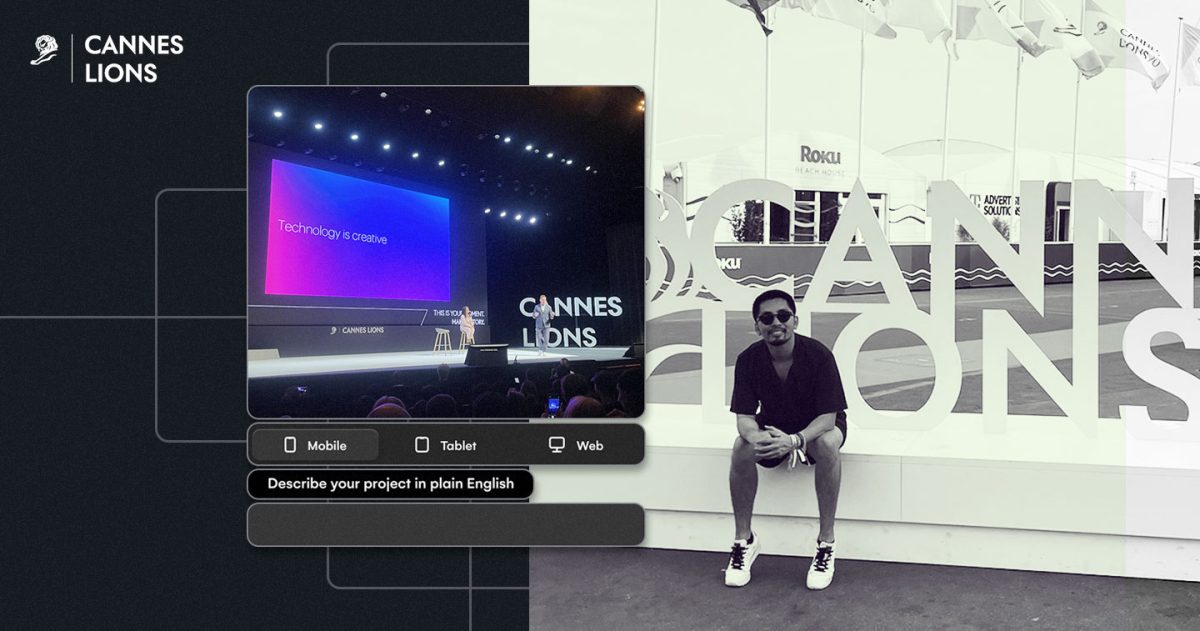CANNES, FRANCE — The creative industry is seeing a huge transformation before its eyes. With the rapid acceleration of digital in the past decade, it’s not a complete surprise that creatives everywhere are now facing the hard questions that come with the rise of AI.
Are the ways that AI might make creatives’ jobs easier worth the risks? How well can AI replicate the work of a creative and how well do we want it to? Will the continued improvement and availability of AI automatically lead to rendering more jobs obsolete or can it create more opportunities?
These just represent a tiny fraction of the ways the world has attempted to delve into and unpack the topic of AI in the past year as more AI-powered innovations made their way to bigger and more accessible platforms. So, as expected, it was a very prevalent subject at this year’s Cannes Lions, from the cocktail hours to the talks from experts. After all, its fitting that a gathering of some of the world’s top creative minds would foster nuanced discussions about what AI has done to the industry so far and how it will continue to shape it.
One of the many creative leaders at the prestigious festival is Propel Manila CCO Raymund Sison. Among the company of his peers and fellow experts, he found himself immersed in many conversations about the future of AI and what it means for the industry throughout the week at Cannes.
With this experience, Raymund was able to engage with a wide array of insights on AI, its ethics, the opportunities it brings, and how creatives can keep up with this huge shift. In this adobo Magazine exclusive, Raymund gives us a glimpse of this experience and takeaways that are worth pondering for creatives everywhere.
“I am not scared of machines thinking like humans. I am scared of humans thinking like machines.” A powerful line from Accenture Song’s Nick Law that left me thinking, even way after his talk Technology is Creative at the Cannes Lions Festival.
So I wrote an article about it, with a little help from AI.
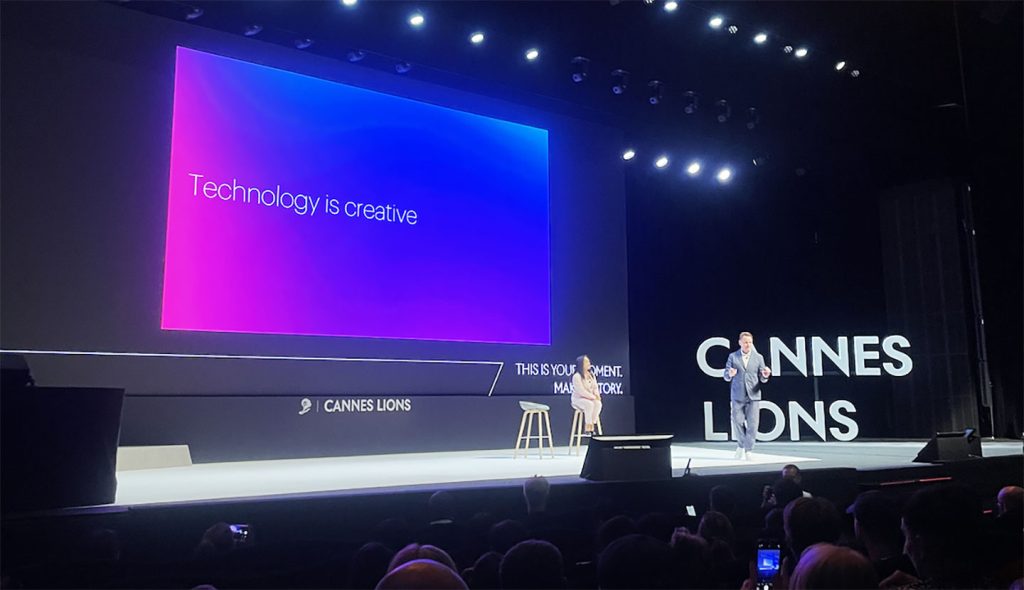
There was no escaping the topic of AI in Cannes. It was as ubiquitous as rosé, naturally flowing, and in some instances, overflowing into conversations — whether you were at the Meta beach or at the TikTok lounge, enjoying brunch at the Martinez or having sunset drinks at the Carlton, partying in a yacht, or attending talks at the Palais. And rightfully so, as it promises to revolutionize everything we know. Uncomfortable questions were asked. And answers led to more thought-provoking questions. And with the way things were going in Cannes, it’s looking like we’re on the verge of a truly pivotal creative moment.
While AI has been around these past years, consistently transforming the way we live, it’s only recently that it’s reached peak public consciousness, thanks to remarkable advancements like ChatGPT becoming generative. This breakthrough has put AI in the brightest spotlight as a great accelerator of creativity.
Contrary to conversations about AI replacing human creativity, I think AI will help creativity, not kill it. There’s nothing like the brilliance of a human mind which can craft highly-nuanced multi-layered plots and subplots of mixed emotions and beautiful imperfections. It’s more likely that humans will add creative magic to whatever AI can do. I titled this piece Humans and Machines because AI needs humans and humanity for it to be truly great. It’s not a “versus,” it’s an “and.” It’s a glorious collaboration in the making.
Let’s begin with the most obvious — AI as a creative collaborator: A brainstorm buddy, an imagination expander, a reference library, an endless source of inspiration. It’s a super tool that can open up a million creative portals per second, revolutionizing the way we ideate. Or perhaps we can look at AI as our creative assistant: our creative right hand, our visualizer, our copyreader, our deck builder, our sound maker, our editor. A partner that can do all these things almost instantaneously. It’s almost like a creative’s superpower!
At the Indie Forum hosted by The Network One, JC Valenzuela, my partner at Propel Manila, delved into how AI augments, processes, fuels creativity, and drives product development. Meanwhile, Mike Talbot of Work in Progress Canada gave us a glimpse into their innovative use of AI, feeding the model with voice samples from an in-house voice talent to generate audio in one click. And over at the Connections Lounge, I had the privilege to have a conversation with Louis Rostoucher of SphereTrax London, where he showcased how AI is transforming the world of audio and sound. With one tap, we can now effortlessly create tailor-made tracks exactly according to what we want for whatever content we’re making.
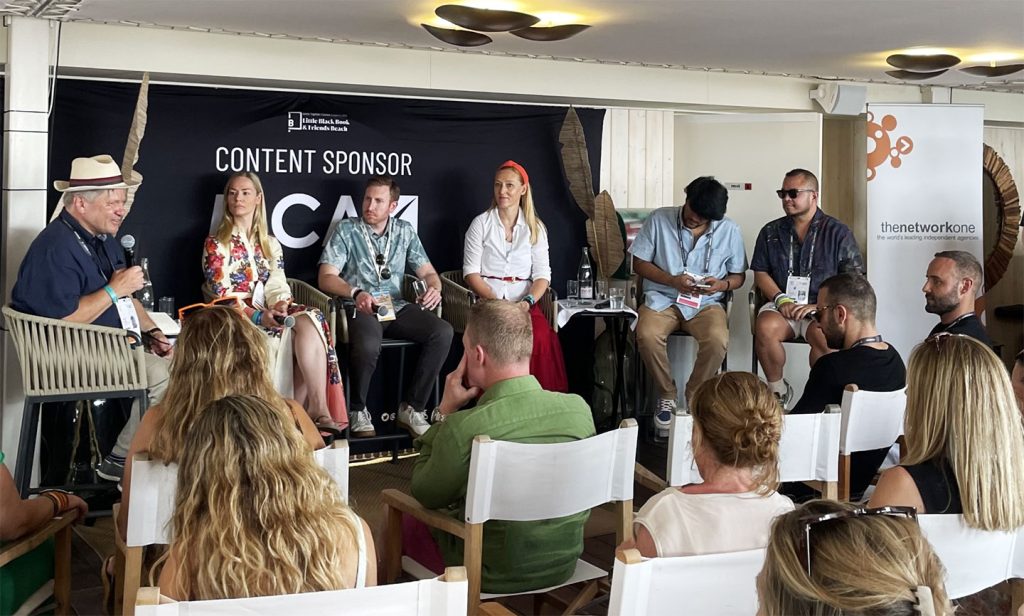
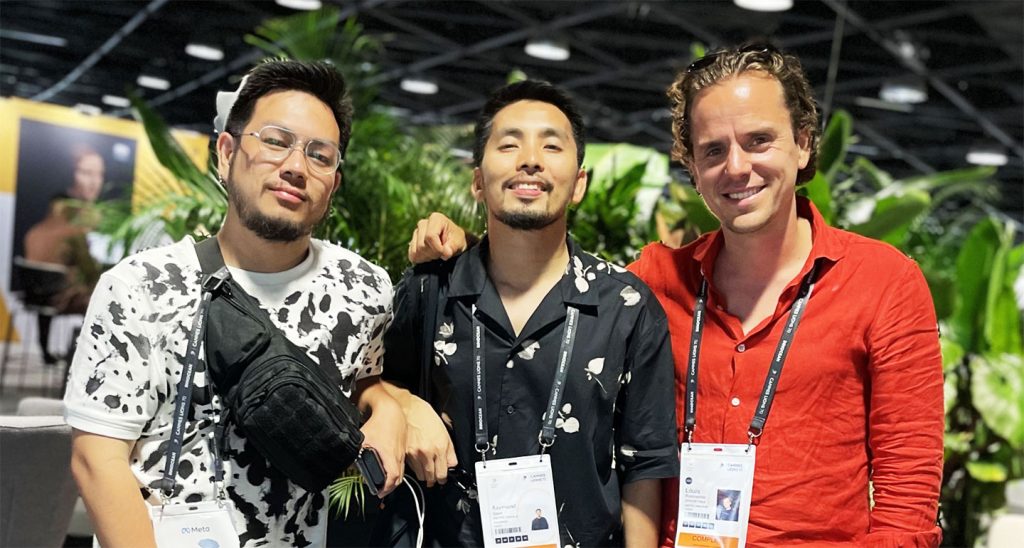
Will AI replace you? Nope. Someone who knows how to use AI will. In his session, music icon Will.i.am emphasized that AI will inevitably render a lot of jobs obsolete, as it has been with many technological innovations in the past. But it will also create new jobs, bring fresh new ideas, and open new industries. As the founder of FYI.AI (Focus Your Ideas with AI), he talked about FYI.AI as a tool for creative collaboration, for creatives to supercharge themselves with AI. In an era where humans interact with machines in unprecedented ways, it’s only right that our creative teams evolve with it. We have progressed from art and copy, and embraced art, copy, and code, and now we’re witnessing the renaissance of a new creative team: humans and machines. Machines without humans will fail. But the humans with machines will fly. The creatives who know how to maximize AI will own the future.
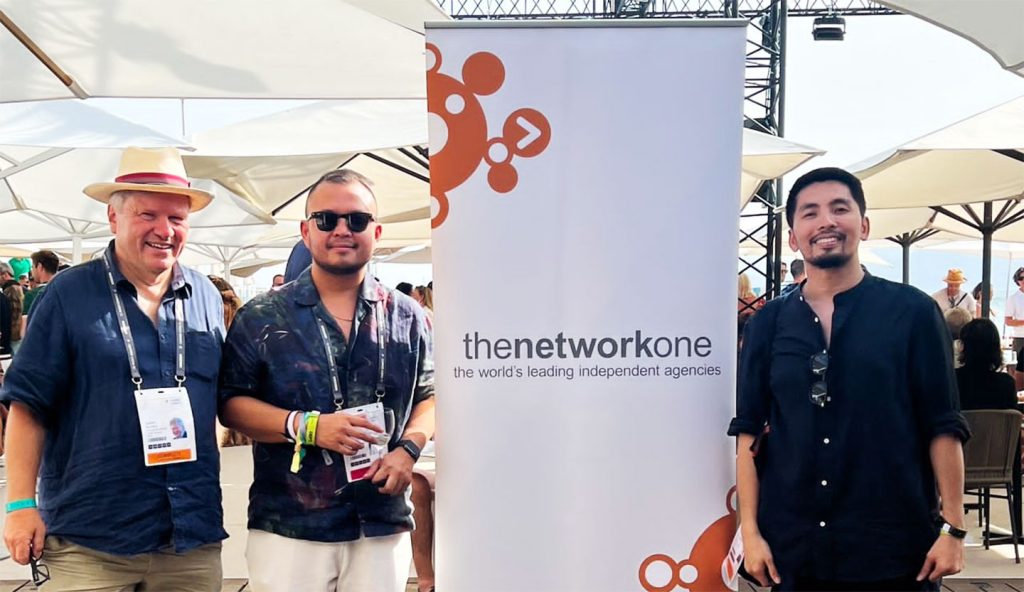
AI in its most fundamental essence is a tool, invented by humans to serve humanity. During their aforementioned talk called Technology is Creative, Nick Law and Lan Guan highlighted the three pillars by which AI should be in the service of humans: Automation, Assistance, and Innovation. Automation involves delegating tasks that don’t require human thinking, so humans can have more time to focus on higher-level creative thinking. Assistance provides support to humans, improves processes, and boosts creativity. Lastly, innovation is a force that drives technological breakthroughs across creative fields. It’s the part that excites me the most, as it allows us to explore uncharted territories, novel universes, and fresh new experiences that can put the human creative potential in full throttle. While AI won’t provide all the brilliant answers and solutions, it will grant us the invaluable gift of time and space to discover them.
I say all these quite conscious of the challenges that come with the rise of AI. Ethical considerations, copyright concerns, bias, and the need for regulation, among others. Technological innovations that revolutionize our way of working and our way of life will always have human concerns. While tackling these issues in depth requires another story altogether, it brings some optimism to see companies like Google taking a bold and responsible move by rolling out solutions – for example, adding watermark and metadata on AI-generated images to protect copyright. Notably, Japan’s Agency for Cultural Affairs has drafted a copyright protection law to regulate AI usage. A landmark move that signals a pivotal point against copyright infringement. This is very important because the future of creativity will be shaped by how responsibly we use AI as a collective. It will take companies, brands, governments, and every one of us, hand in hand, to use the technology responsibly and utilize it with good intentions. Hopefully, we see more of these solutions soon.
The rise of the machines will work wonders with the human heart. Machines will always be at their best with humans. The more we use technology, the more we need humanity. That’s the thing we should never lose — our humanity. Because human is the thing machines can never be.

